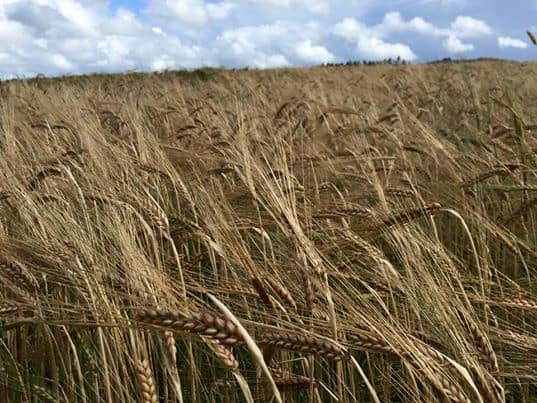As Scotland prepares for the first phase in easing lockdown restrictions, arable farmers have mapped out their priorities to reset, restart and recover.
The Union has recognised that Scottish agriculture and all that it underpins will have to change and adapt from ‘business as usual’ to a very new operating environment. It believes that resetting and restarting food production, processing and distribution will also provide significant opportunity for Scottish agriculture.
Willie Thomson Arable Recovery
As the UK and Scottish Governments set out their plans for coming out of lockdown and kick starting the economy and businesses, our commodity committees have set out their plans for their sectors. Willie Thomson, NFU Scotland Combinable Crops Chairman, sets out the key areas for recovery in the crop growing sector. https://www.nfus.org.uk/news/news/scotlands-arable-farmers-map-out-priorities-as-nation-prepares-to-reset-restart-and-recover
Publiée par NFU Scotland sur Mercredi 27 mai 2020
All NFU Scotland’s commodity committees and working groups – combinable crops, livestock, milk, pigs, poultry and specialist crops – have identified key steps and actions needed to secure a profitable and sustainable agricultural industry.
For those growing crops, the priorities are the following:
- The safe re-opening of key processing facilities such as distilleries and breweries.
- The availability of transport and storage for cereals, particularly around harvest time.
- Emphasising the significant contribution of cereals and oilseeds to Scotland’s economy and the need for that to be recognised in policy and support.
- Highlighting the sector’s environmental credentials.
- Securing a favourable Brexit deal on trade, tariffs and standards.
- Decisions on access to plant protection products to be driven by science.
Combinable Crops Committee Chairman Willie Thomson, who farms at Longniddry in East Lothian said: “During the Covid-19 pandemic, the Combinable Crops Committee has focused on two main areas – the impact of lock-down on the grain supply chain and Brexit, looking beyond the coronavirus outbreak.
“The Scottish Government’s classification of whisky distilling as non-essential has slowed production. Combined with reduced brewing malt demand, it has meant malt production has also slowed. Fewer loads into distillers, brewers and maltings combined with loss of other business has led to hauliers furloughing drivers and parking up vehicles.
“Our concern is what this could mean at harvest time. Using information from the rest of the chain, we have been pressing Scottish Government to ease constraints on distilling as soon as possible to allow processors to catch up on delayed production and prevent backlogs at harvest.
“Despite lock-down, the UK Government is adamant that the Brexit transition period will not be extended. But there remains a question over whether a deal can be agreed in time to stop big tariffs on UK grain exports to Europe. If UK tariffs are set lower as has been set out for some cereal products, that would put us at a real disadvantage.
“Future support is the other Brexit issue. I took the opportunity of a teleconference with Fergus Ewing recently to spell out the importance of our sector, both as a supplier to the whisky industry and as an integral part of Scottish agriculture, needing fair treatment in future policy-making and support schemes.”
- NFU Scotland sees the role of all farmers and crofters as central to Scotland’s Covid-19 recovery process given the range of economic, environmental and social benefits they can deliver. NFU Scotland believes Scottish agriculture should:
- produce the high-quality food and drink that its customers want.
- embrace change and seek new market opportunities.
- lead in the delivery of climate ambitions and a flourishing environment.
- drive sustainable rural development, helping rural communities thrive and prosper.
- contribute to key objectives on animal health and welfare and promote human health and well-being.
- NFU Scotland has initiated reset, restart and recovery plans for different sectors of Scottish agriculture. The sectors covered are livestock, milk, pigs, poultry, specialist crops and combinable crops.






